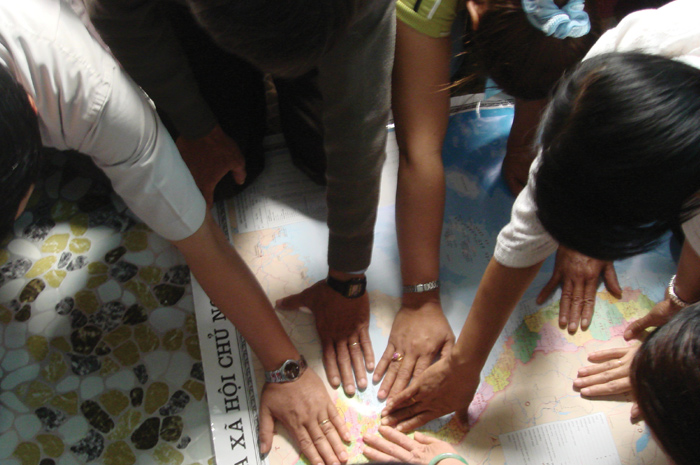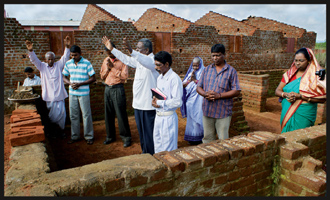
Praying for Greater Connection
"As it is, there are many parts, yet one body....
If one member suffers, all suffer together;
if one member is honoured, all rejoice together."
1 Corinthians 12:20,26 ESV
Persecuted Christians ask that they not be abandoned nor cut off from the body of Christ. Yet, far too often, they feel as though they are alone, forgotten and disconnected from other believers. They long to be in fellowship with their brothers and sisters in Christ, for it is in this environment that they find encouragement and comfort as they exercise their faith.
Charles Colson explains the importance of genuine community as depicted within the church. He writes: "How we belong to one another goes beyond the 'sweet fellowship' of potluck suppers and finding a comfortable social circle. True community involves real koinonia, a deep communion – the kind the apostles described in Acts 4, which is the first real sign of the Kingdom on earth, where each person in need was helped (vv. 32-35). This is where people truly bear one another's burdens and, yes, even suffer for one another."1
It's far too easy to categorize the church and break down the body of Christ in geographical and denominational terms. While local church membership is essential for every Christian, we must not forsake our extended family which forms the global church. Despite location and theological differences within the church worldwide, there needs to be a growing sense of our communal need for each other.
Several years ago, I made an arduous trip within Ethiopia to visit Christians experiencing immense pressure and adversity. I spent a good part of my visit listening to testimonies of persecution and suffering from these followers of Jesus. I could tell they were thrilled to share their stories with me because, by being with a Westerner, they felt connected to a larger community of believers. The next day, I attended their church service and, although I did not understand the language, it was a special privilege to worship with these saints. After the service, we sat down for a meal and, during this time, the pastor turned to me and said, "Thank you for coming to taste our suffering."

When we take the time to listen to our persecuted family and lift them up before God's throne of grace, we have the opportunity to 'taste their suffering.' While not everyone can travel across the globe to fellowship directly with persecuted Christians, we all need to hear and read about their situations and learn from their testimonies. In doing so, the Holy Spirit builds the connection, and a greater awareness of community is gained.
Dietrich Bonhoeffer aptly described the importance of this connectedness: "Every Christian community must realize that not only do the weak need the strong, but also that the strong cannot exist without the weak. The elimination of the weak is the death of fellowship."
In the Christian community, who are the strong and who are the weak? We may believe that those being persecuted are weak while those enjoying religious freedom are strong. However, I have seen great strength in the lives of those who are oppressed because of their faithful witness for Christ in a hostile world. Conversely, I see a weakening church in countries where the freedom to worship is protected.
The strong then are those who can declare in any circumstance, "I am not ashamed, for I know whom I have believed, and I am convinced that He is able to guard until that day what has been entrusted to me" (2 Timothy 1:12 ESV). The weak are those who depend on their rights and freedoms, and struggle to abide in the presence of the Almighty Saviour. Fellowship brings these two groups together and, in that connection, there is powerful communion.
May we, as one body in Christ, be united in a community that's rich in mercy, peace and love.
Grace and peace,
Floyd A. Brobbel
Chief Executive Officer
The Voice of the Martyrs Canada Inc.
Endnote: 1 Colson, Charles, The Faith: Given Once for All – Jude 3, Zondervan, Grand Rapids, MI, 2008, pg. 154


